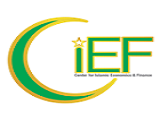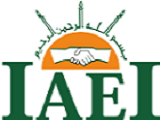IFRS Based Zakat Reporting: Adoption Rational Western Method Into Institutional Accountability
Abstract
ABSTRACT
This study aims to evaluate the characteristics of zakat institution and proposes the adoption of International Financial Reporting Standard (IFRS) since it has developed and provides various product i.e zakat for productive purpose. This is important, considering that one of the measurement of accountability and transparency of an institution is providing brief financial report towards its beneficaries. Thereby, this study found that practically zakat institution is simillar to the SMEs, and there are 11 strandard of IFRS for SMEs that could be applicable to zakat institutionto achieve accountability and transparency. However, this study is preliminary study that proposes a conceptual frameworkwhich limited to the sharia compliance of IFRS that could be applicable to zakat Institution.
Keywords: IFRS for SMEs, SMEs Criteria, Zakat Institution
JEL Classification:
Full Text:
PDFReferences
REFERENCES
Abdul Wahab, Norazlina., Abdul Rahman, Abdul Rahim. 2011. “A Framework to analyse the efficiency and governance of Zakat Institutions” Journal of Islamic Accounting and Business Research, Vol. 2 Issue: 1
Abdul Wahab, Norzalina, Zainol, Zairy., Abu Bakar. 2017. “Towards developing services quality inderx for zakat institutions” Journal of Islamic Accounting and Business research, Vol. 8 Issue: 3, pp 326-333
Ahmed, Habib. 2002. “Financing Microenterprises: An Analytical study of Islamic Microfinance Institution”. Islamic Economic Studies, Vol.9, No.2
AOSSG, 2015, Financial Reporting by Islamic Financial Institutions: A study of financial statements of Islamic financial institutions, Asian-Oceanian Standard-Setters Group
Al Parisi, Salman. 2017. “Overview of Forecasting Zakat Collection in Indonenesia using Multiplicative Decomposition” International Journal of Zakat 2 (1) page 45-59
Alim, Mohammad Nizarul. 2015. “Utilization and Accounting of Zakat for Productive purposes in Indonesia: A Review. Procedia-Social and Behavioral Science
Ayyagari, Meghana., Beck, Thorsten and Demrgue-Kunt, Asli. 2007. “Small and Medium Enterprises across the Globe” Small Business Economics, Vol. 29, No. 4 pp. 415-434
Budd, R.W., Thorp, R.k. & Donohue, L. 1967. Content analysis of communications, New York: The Macmillan Co
Fearnley, Setlla and Hines, Tony. 2007. “How IFRS has destabilised financial reporting for UK non-listed entities” Journal of Financial Regulatin and Compliance, Vol. 15 Issue: 4 pp.394-408
Francis, Abogaye-Otchere and Agbeibor, Juliet. 2012. “The International Financial Reporting Standard for Small and Medium Sized entities (IFRS for SMES): Suitability for Small Business in Ghana” Journal of Financial Reporting and Accounting, Vol. 10 Issue: 2, pp. 190-214
Hassan, Nuhani Md. And Noor, Abd Halim Mohd. 2015. “Do Capital Assistance Programs by Zakat Institutions Help the poor?” Procedia Economics and Finance 31, IFRS for SMEs, 2015
Ihsan, Hidayatul., Ayedh, Abdullah. 2015. “A Proposed Framework of Islamic Governance for Awqaf” Journal of Islamic Economics, Banking and Finance, Vol 11 No. 2
Immanuela, Intan. 2009. “Adopsi penuh dan Harmonisasi standar akuntasi Internasional” Jurnal Ilmiah widya warta
Kaleem, Ahmed., Ahmed, Saima. 2010. “The Quran and Poverty Alleviation: A Theoritical Model for Charity Based Islamic Microfinance Institutions (MFIs)”. Nonprofit and Voluntary Sector Quarterly, Volume 39 Number 3 Published by sagepublications.com
Kerlinger, F.N. 1986. Foundation of behavioral research (3rded). New York: Holt Rineheart and Winston
Lestari, Yona Octiani. 2013. “Konvergensi International Financial Reporting Standard (IFRS) dan Manajemen Laba di Indonesia” Jurnal El Muhasabae-journal UIN Malang
Mantzari, Elizavet., Sigalas, Christos, Hines, Tony. 2017. “Adoption of International Financial Reporting Standards by Greek non-listed companies: The role of coercive and hegemonic pressures” Accounting Forum, pp. 185-205
Masca, Erna. 2012. “Influence of Cultural Factors in Adoption of the IFRS for SMEs” Precedia Economics and Finance 3 pp.567-575
Mikail, Said Adekunle., Ahmad, Ali Jinnah Muhammad., Adenkule, Salami Saheed. 2017. “Utilisation of zakah and Waqf fund in Micro Takaful model in Malaysia: An exploratory study” ISRA International Journal of Islamic Finance, Vol.9 Issue: 1, pp.100-105
Pacter, Paul. 2014. “A Place for the IFRS for SMEs in the United States?” Research in Accounting Regulation pp. 239-241
Purnamasari, F., & Darmawan, A. (2017). Islamic Banking and Empowerment of Small Medium Enterprise. Etikonomi, 16(2), 221-230.
Perera, Dinuja and Chand, Parmond. 2015. “Issues in the adoption of International Financial Reporting Standard (IFRS) for Small and Medium-Sized enterprises (SMES) Advances in Accounting, incorporating Advamced in Interational Accounting 31 pp.165-178
Rahman, Rashidah Abdul., Dean, Faisal. 2013. “Challanges and Solutions in Islamic Microfinance” Humanomics, Vol. 29 No.4
Saad, Ram Al Jaffri., Abdul Aziz, Norazita Marina., Sawandi, Norfaiezah. 2014. “Islamic accountability framework in the zakat funds management” International Conference on Accounting studies, ICAS, Kuala Lumpur
Sapovadia, Vrajlal K. 2017. “Importance of Aligning IFRS with SDGs” www.papers.ssrn
Suryanto, T., Purnamasari, F., & Kurniawan, M. (2018). Tax Revenue and Disparity: How to Improvement Income Inequality in Islamic Perspective. Asian Journal of Social Sciences and Management Studies, 5(2), 65-71.
Uyar, Ali and Gungormus, Ali Haydar. 2013. “Perceptions and Knowledge of accounting proffesionals on IFRS for SMEs: Evidence from Turkey” Reseacrh in Accounting Regulation pp.77-87
Van Wyk, H.A and Rossouw, J. 2009. “IFRS for SMEs in South Africa: a giant leap for accounting, but too big for entities in general” Meditari Accountancy Journal Research, Vol. 17 Issue: 1, pp.99-116
Yacoob, Hisham., Petra, Saerah., Sumardi, Azimah., Nahar, Hairul Suhaimi. 2015. :Accountability through accounting and reporting lenses: Lessons from an Awqaf institution in a Southeast Asia Country” Humanomics, Vol. 31 Issue: 3, pp.299-313.
Yumna, Aimatul and Clarke, Matthew. __ “Integrating zakat and Islamic charities with microfinance initiative in the purpose of poverty alleviation in Indonesia” 8th International conference on Islamic Economics and Finance
DOI: http://dx.doi.org/10.24042/febi.v3i1.2512
Refbacks
- There are currently no refbacks.
Copyright (c) 2018
Ikonomika : Jurnal Ekonomi dan Bisnis Islam is a Journal of Islamic Economics and Business, Published by the Faculty of Islamic Economics and Business at UIN Raden Intan Lampung Indonesia. This work is licensed under a Creative Commons Attribution-ShareAlike 4.0 International License.






11.png)


